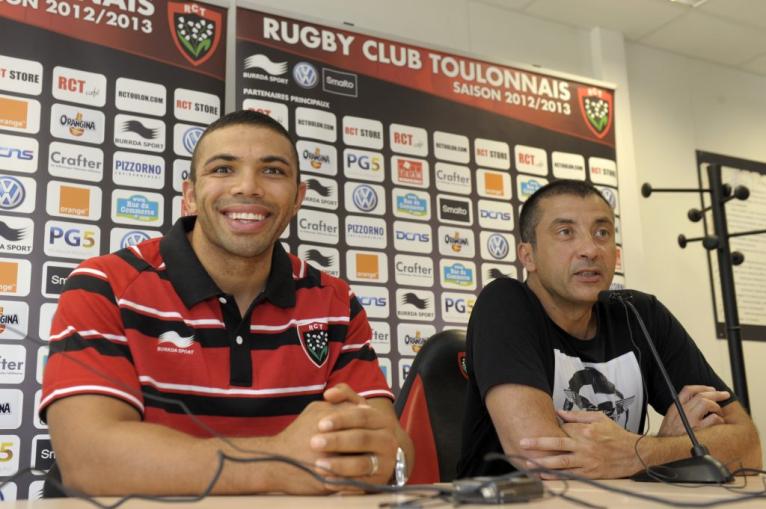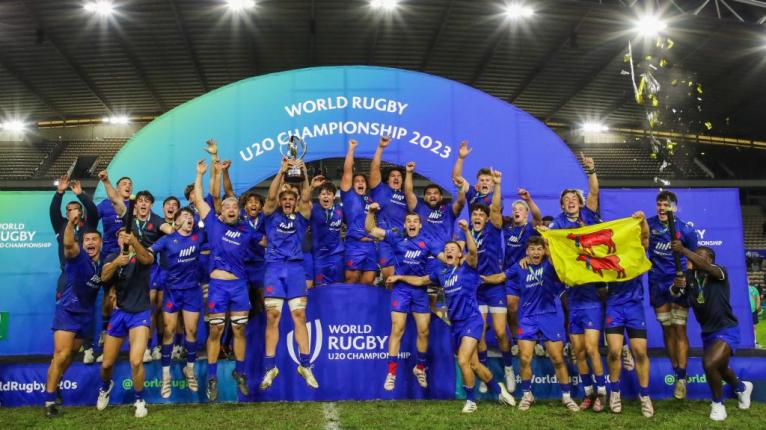Rugby has a love-hate relationship with change – just look at social media whenever new law trials are unveiled. Preferably from a safe distance. While some laws are ultimately scrapped after on-field testing, others become established, accepted, and fans slowly forget the brouhaha at their introduction.
The same is true of institutional transformation at league level. At the start of the 2009-10 season, France’s Ligue Nationale de Rugby (LNR), the body that runs the country’s two top professional men’s divisions, introduced its JIFF rules.
The acronym stands for Joueurs Issus des Filières de Formation. To qualify as JIFF, players must spend five years playing age-grade rugby at any FFR-affiliated club, or three seasons with a French professional club’s academy by age 23.

Criticised at the time, this slow-burn policy change – it was years before any effects were felt – is now credited with a lot of the heavy lifting in turning around the fortunes of the French men’s national side, not to mention the Under-20s.
As far as clubs are concerned, there are two related but distinct areas to current JIFF regulations, in force in the Top 14 and second-tier ProD2: one concerns the wider squad, the other the matchday 23.
The former limits the number of senior pro non-Jiff players in any Top 14 or ProD2 club set-up to 13, except for sides newly promoted to the Top 14, such as, this season, Vannes. They are permitted one extra non-JIFF senior player in their rookie season.
When I see the evolution of the French side, it is undoubtedly the reform of which I am most proud.
The latter insists – on pain of a scaled points deduction the following season – established clubs maintain an average minimum of 16 JIFF players in their matchday 23 across a season – Vannes are expected to hit a lower 14 average this season, and 15 next if they remain in the Top 14. Meanwhile, clubs which average 17 or more Jiff players in their matchday 23s throughout the season access additional funding.
Bringing in JIFF rules – and the salary cap – are matters of pride for Castres Olympique president Pierre-Yves Revol, who was head of the LNR when both game-changing regulations came into effect.
“When I see the evolution of the French side, it is undoubtedly the reform of which I am most proud,” Revol told French rugby newspaper Midi Olympique recently. “JIFF [regulations] alone do not explain the improvement in the performances of Les Bleus, but they have certainly contributed.”
He’s right. Crediting France’s turnaround under Fabien Galthie wholly to JIFF rules ignores the head coach’s own efforts, as well as a huge and concomitant amount of background work on pathways, age-grade systems and grassroots investment. But some of these changes are linked to and a result of rules forced through in a soulless committee room a decade and a half ago.

According to Revol, the reasoning behind JIFF rules’ introduction was, ‘simple common sense’.
“In the Top 14, the majority of the starters in certain positions were overseas players, and France selectors found it hard to pick anyone who played regularly in national competition – at tight-head or fly-half, for example,” he explained.
“Over and above the interests of the France squad… there was also the question of the public’s long-term interest in a competition that was cutting itself off from its territorial and national roots in a sport that is evolving but still retains strong traditions.”
LNR president Rene Bouscatel is also a fan. In 2022, after Les Bleus had claimed a first Six Nations Grand Slam since 2010, he said: “We have seen sporting success with this magnificent Grand Slam. It owes a lot, it seems to me, to the work carried out upstream by my predecessors around the JIFF policy.”
There is a premium in France on players with JIFF status, whether they are eligible to play for France or not. Even so, with up to 13 non-JIFF slots available, there’s still plenty of room in French rugby for overseas talent,
In fact, in his former role as Toulouse president, Bouscatel had opposed the scheme.
“I am against any quota,” he said in 2013. “I believe each club should be able to organise itself as it wishes. [And] I fear knock-on effects. If we make all clubs fall into line, we expose ourselves to excessive salary inflation for JIFF players.
“I am not against the principle of JIFF – on the contrary, I find it entirely praiseworthy – but I wish to highlight its perverse effects.”
He had a point. There is a premium in France on players with JIFF status, whether they are eligible to play for France or not. Even so, with up to 13 non-JIFF slots available, there’s still plenty of room in French rugby for overseas talent, as the recruitment merry-go-round reveals year in, year out – even if the market has changed. Clubs these days proudly trumpet their ‘made in France’ players. Especially any local lads made good.
In 2010, Racing 92 owner Jacky Lorenzetti had similar views to Bouscatel. The club even went to the European Commission, claiming the rules, ‘infringed EU competition laws’.

But the JIFF blueprint, according to Revol, was carefully designed with input from Brussels. So, while, on the face of it, they may appear to skirt EU wire in some areas, that early challenge did not work and the mood in French rugby towards it is now uniformly positive. It seems unlikely to see another challenge in the foreseeable future.
Even so, there have been several rule tweaks since 2009. The rules have tightened – the required matchday average started at 10 and has risen over the years, while permitted wider squad non-JIFF numbers have fallen. Educational requirements have been added for young overseas players joining academies. Players signed on short-term contracts as injury cover – so-called ‘medical jokers’ – count to the total. Academy players who have not yet completed their qualifying period cannot play for senior sides at JIFF capacity.
And French rugby has – slowly – benefited. It was always going to take time. Developing academies, bringing players through, nurturing talent, giving it a chance doesn’t happen overnight. JIFF was never a short-term fix.
The U20s have won three of the past four World Rugby U20 Championships, and finished second in South Africa in July with a squad weakened by call-ups to the senior tour.
Fifteen years after they were introduced, it’s clear JIFF rules have had a positive effect on French men’s rugby.
The national team challenges for titles – the quarter-final of Rugby World Cup 2023 was a far cry from the quarter-final of Rugby World Cup 2015, for all that expectations weren’t entirely managed in France. The U20s have won three of the past four World Rugby U20 Championships, and finished second in South Africa in July with a squad weakened by call-ups to the senior tour.
And the Top 14 and ProD2 remain as vibrant as they always were. Rugby in France has merely changed its stars. Once they were imported, now they’re mostly French.


Shows long term fermentation produces organic results!
Interesting article on how the JIFF system transformed the French rugby in depth. And the most successful clubs (Toulouse, La Rochelle, UBB) are the ones with the best JIFF scores unlike the mercenaries clubs like Racing 92, Toulon and Montpellier mainly focused on foreign players.
I recently saw an article on this platform about the average height, weight and age of every Top 14 team for this season. Toulouse have the youngest squad. I find that impressive.